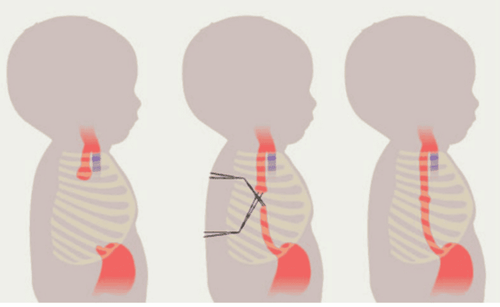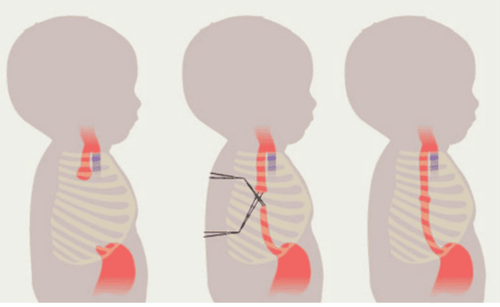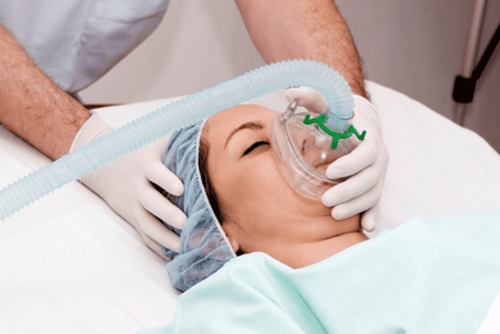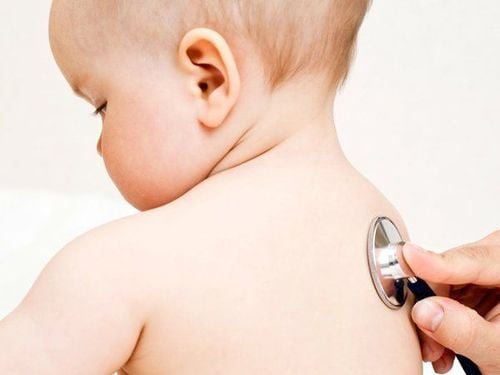This is an automatically translated article.
The article was written by Doctor Dam Thi Quynh - Pediatrician, Pediatric Center - Vinmec Times City International General Hospital.Respiratory failure is a very common syndrome in the neonatal period, especially in the first days after birth, during the time when the child adapts to the outside environment. Premature infants are more susceptible to respiratory failure than term infants.
1. What is infant respiratory failure?
Acute respiratory distress syndrome refers to the non-adaptation of the respiratory system, which can appear immediately after parturition or a few hours or days after birth.
Normal newborn breathing rate 40-60 times/minute. Newborns, especially premature babies, often have short pauses in breathing < 15 seconds. If the child stops sighing for >15 seconds, recurrence can lead to respiratory failure.
Degree of respiratory failure?
Assess the degree of postpartum respiratory failure based on the Silverman index (scoreboard), including 5 clinical symptoms: Movement of the chest and abdomen, Contraction of the intercostal muscles, retraction of the sternum, undulation of the nose, groan breathing. Depending on the patient's condition there is a corresponding clinical respiratory rate. If the score is:
<= 3 points: No respiratory failure If 4-6 points: Moderate respiratory failure If >= 7 - 10 points: Severe respiratory failure

Theo dõi nhịp thở để chẩn đoán lâm sàng bệnh suy hô hấp ở trẻ
2. What are the causes of acute respiratory failure in infants?
There are many causes of respiratory failure in infants. Respiratory failure can be classified based on the location of organ damage:2.1 Due to upper airway obstruction Posterior nostril obstruction Esophageal and tracheal fistula Pierre-Robin syndrome Soft laryngeal cartilage 2.2 Due to sugar causes Lower respiratory tract Immature lungs Endometrial disease Slow-digestive syndrome Meconium aspiration syndrome Pneumonia Pneumothorax, mediastinum 2.3 Congenital heart disease Transposition of the great arteries Left ventricular hypoplasia Fallop's aortic stenosis 4

Trẻ bị suy hô hấp do tim bẩm sinh
2.4 Due to thoracic abnormalities, respiratory muscle abnormalities Diaphragmatic hernia Werdnig - Hoffman syndrome: hereditary Myasthenia gravis 2.5 Neurological diseases Brain hemorrhage Encephalitis, meningoencephalitis Brain injury 2.6 Blood diseases Polycythemia vera Coagulation disorders 2.7 Metabolic diseases Acidosis Hypoglycemia Hypocalcemia
3. What are the principles of neonatal respiratory failure treatment?
Causes of neonatal respiratory failure are diverse. Depending on the cause of the disease as well as the degree of respiratory failure, there is a specific treatment regimen for each disease. However, before a child has respiratory failure, it is necessary to manage based on the following principles:
Open airway Provide oxygen Treat cause Treat supportive care
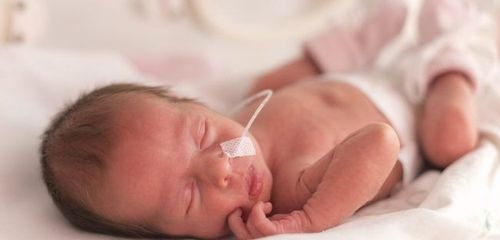
Cung cấp oxy cho trẻ trước khi điều trị
3.1 Open the airways Solve problems that cause airway obstruction 🡪 the airways become clear.
3.2 Provide oxygen Depending on the child's condition as well as the degree of respiratory failure, choose appropriate measures: Oxygen breathing, NCPAP ventilation, mechanical ventilation ...
3.3 Treatment of causes Diseases and surgical interventions Department: diaphragmatic hernia, congenital esophageal atrophy, Pierre - Robin syndrome ... Medical diseases: Surfactant pump, intravenous fluids, antibiotics, water and electrolytes, caffeine ... 3.4 Supportive treatment Supply adequate energy supply Ensure temperature, humidity Aerosol dilutes sputum... Acute respiratory failure is a very common syndrome in infants. In case the child has respiratory failure, the child needs immediate support with the right method and correct technique. Vinmec International General Hospital with full modern equipment and a team of experienced neonatologists is a reliable base for you to choose.
Customers can directly go to Vinmec Health system nationwide to visit or contact the hotline here for support.






